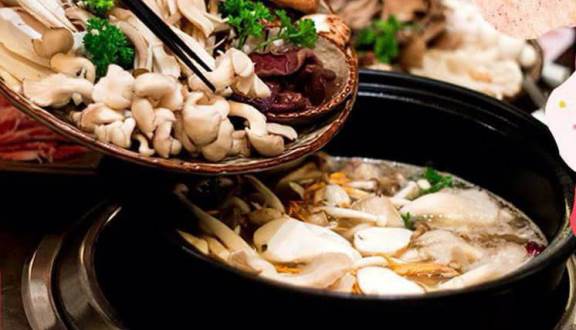Mushroom: Cancer fighters, cell renewers among other benefits

|
They’re low in carbohydrates and calories, but a great source of B vitamins, trace minerals, fiber and even protein. Mushrooms are also an anti-inflammatory food, and mushroom nutrition contains high levels of beta-glucan compounds that keep immune cells alert, plus a powerful antioxidant called ergothioneine that helps lower body-wide inflammation.
The medicinal use of mushrooms has a very long tradition in Asian countries that dates back thousands of years. Although their use in the Western Hemisphere only started increasing in the past several decades, numerous recent studies show that they are vital, biologically active compounds with significant benefits to health.

Is a mushroom a vegetable or a meat?
Although most people think of mushrooms as vegetables, they’re in fact a type of beneficial fungi. The term “mushroom” refers to any macrofungus with a distinctive fruiting body large enough to be seen with the naked eye and picked by hand. As of now, mushrooms constitute at least 14,000 different plant species — and perhaps way more. The number of mushroom species on the Earth is estimated to be 140,000, which suggests that scientists only know about 10 percent of the possible species at this time.
Some of the most common types of edible mushrooms include:
Shiitake mushroom
Morel mushroom
Reishi mushroom
Chaga mushroom
Turkey tail mushroom
Portobello mushroom
Lion’s mane mushroom
Oyster mushroom
Maitake mushroom/Hen of the woods mushroom
Cremini mushroom
Wood ear mushroom
Honey mushroom
Truffle mushroom
Porcini mushroom
Enoki mushroom
King oyster mushroom
Chicken of the woods mushroom
Cordyceps mushroom
Although various types of mushrooms differ in terms of their exact calorie and nutrient count, mushroom nutrition is typically very low in carbohydrates (making them a natural choice for the low-carb or keto diet), calories, fat and sodium. Mushroom nutrition also provides an array of perse nutrients, including antioxidants, energizing B vitamins, copper and selenium.
 |
One cup of raw white button mushroom nutrition contains the following nutrients:
21 calories
2 grams carbohydrates
3 grams protein
1 gram fiber
0.4 milligrams riboflavin (23 percent DV)
5 milligrams niacin (17 percent DV)
4 milligrams pantothenic acid (14 percent DV)
0.3 milligrams copper (13 percent)
9 milligrams selenium (13 percent DV)
305 milligrams potassium (9 percent DV)
83 milligrams phosphorus (8 percent DV)
Precautions
If you buy mushrooms in extract form or scavenge for wild mushrooms on your own, always look for a reputable brand and consult with a specialist who knows about wild mushrooms and is well-versed in mushroom identification. Some mushroom types, such as psilocybin mushrooms and amanita mushroom, also known as psychedelic mushrooms or “magic mushrooms,” contain compounds that can cause symptoms like hallucinations and changes in perception. Other mushrooms, like the death cap mushroom, can be toxic or contaminated and are not meant for human consumption, so be careful where you purchase “medicinal mushrooms.”
Also, look for organic mushrooms whenever possible, and if you can’t find these, give dirty mushrooms a good rinse or wipe down to remove residue, bacteria and possibly even insects.
Keep in mind that most mushrooms contain purines that can be naturally found in some plants and are linked to health problems in some cases. Purines break down to form uric acid, which can accumulate and lead to conditions like gout or kidney stones in rare circumstances. Therefore, if you have an existing problem that’s worsened by purines, you should eat mushrooms in moderation./.
( Dr. Josh Axe )
Recommended
 Handbook
Handbook
Vietnam Moves Up 8 Places In World Happiness Index
 Handbook
Handbook
Travelling Vietnam Through French Artist's Children Book
 Multimedia
Multimedia
Vietnamese Turmeric Fish among Best Asian Dishes: TasteAtlas
 Handbook
Handbook
From Lost to Found: German Tourist Thanks Vietnamese Police for Returning His Bag
 Handbook
Handbook
Prediction and Resolution for the Disasters of Humanity
 Handbook
Handbook
16 French Films To Be Shown For Free During Tet Holiday In Vietnam
 Handbook
Handbook
Unique Cultural and Religious Activities to Welcome Year of the Snake
 Handbook
Handbook
